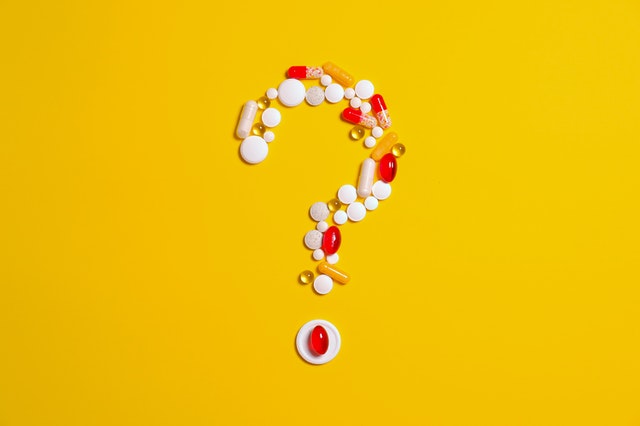FDA approves first oral drug made from human feces
- Normal Liver Cells Found to Promote Cancer Metastasis to the Liver
- Nearly 80% Complete Remission: Breakthrough in ADC Anti-Tumor Treatment
- Vaccination Against Common Diseases May Prevent Dementia!
- New Alzheimer’s Disease (AD) Diagnosis and Staging Criteria
- Breakthrough in Alzheimer’s Disease: New Nasal Spray Halts Cognitive Decline by Targeting Toxic Protein
- Can the Tap Water at the Paris Olympics be Drunk Directly?
FDA approves first oral drug made from human feces
- Should China be held legally responsible for the US’s $18 trillion COVID losses?
- CT Radiation Exposure Linked to Blood Cancer in Children and Adolescents
- FDA has mandated a top-level black box warning for all marketed CAR-T therapies
- Can people with high blood pressure eat peanuts?
- What is the difference between dopamine and dobutamine?
- How long can the patient live after heart stent surgery?
FDA approves first oral drug made from human feces.
On April 26, the U.S. Food and Drug Administration (FDA) approved Seres Therapeutics’ pill (Vowst) made from human feces — the first orally administered fecal microbiota product.
Vowst is approved for the antimicrobial treatment of recurrent Clostridium difficile infection (CDI) and for the prevention of recurrence of CDI in individuals 18 years of age and older.
Clostridium difficile is tough!
According to the Centers for Disease Control and Prevention, Clostridium difficile causes about 500,000 infections in the United States each year, and 1 in 6 infected patients will be reinfected two to eight weeks after recovery.
These recurrent infections can continue to be treated with antibiotics, but these drugs are not always effective against aggressive, antibiotic-resistant strains of C. difficile, which can further disrupt the microbiome and sometimes worsen the infection. To get to the root cause of the problem—an imbalanced gut microbiome—doctors are increasingly turning to so-called fecal microbiota transplants.
The FDA has previously considered “investigational” treatments for “fecal microbiota transplants,” which involve the transfer of screened donor feces into a patient’s gut via colonoscopy, enema or pill. However, challenges in sourcing and screening stools mean transplants aren’t feasible everywhere, reports The Scientist.

How about the drug made from human feces.
So what is Vowst so sacred that it can be approved by the FDA?
CDI is one of the most common healthcare-associated infections in the United States, killing 15,000 to 30,000 people each year. Even after recovering from CDI, individuals may still get re-infected—often multiple infections, a condition known as recurrent CDI.
The dosage regimen of Vowst is to take 4 capsules orally once a day for 3 consecutive days. Vowst contains live bacteria and is made from human feces donated by qualified individuals. Despite testing the donor and the donated stool for a panel of transmissible pathogens, Vowst may still be at risk of transmitting infectious agents. The potential for adverse reactions to Vowst from food allergens is unknown.
The safety of Vowst has been verified in randomized, double-blind, placebo-controlled clinical studies conducted in the United States and Canada. Participants had recurrent CDI, and their symptoms were controlled 48 to 96 hours after antimicrobial treatment.
In both studies, 346 people 18 years of age and older with recurrent CDI received all scheduled doses of Vowst. In one analysis of 90 Vowst recipients, compared with 92 placebo recipients, the most commonly reported side effects in Vowst recipients were abdominal bloating, fatigue, constipation, chills, and diarrhea, which occurred more frequently than placebo recipient.
The effectiveness of Vowst has also been verified. In another study, 89 participants received Vowst and 93 participants received a placebo. After eight weeks of treatment, participants who received Vowst had a lower rate of CDI recurrence than those who received placebo (12.4% vs. 39.8%).
Vowst is related to Rebyota?
Vowst is not the first “fecal drug” to be used in human therapy.
On December 3, 2022, Rebyota was approved by the FDA and became the first marketed “fecal microbiota product”. But it is not an oral drug, but a liquid therapeutic agent is injected directly into the patient’s rectum through a tube.
In a late-stage clinical trial, a single dose of Rebyota was reported to reduce the incidence of Clostridium difficile by 29.4% after 8 weeks of antibiotic treatment compared with placebo. The FDA noted that in both clinical trials, the treatment success rate was “significantly higher in the Rebyota group (70.6%) than in the placebo group (57.5%).”
“The approval of Rebyota is an advance in the prevention of recurrent C. difficile infection,” said Peter Marks, director of the FDA’s Center for Biologics Evaluation and Research. “As the first FDA-approved fecal microbiota product, today’s action is an important one.” milestone because it provides an additional option for the prevention of recurrent CDI.”
Rebyota’s treatment involves collecting gut bacteria from the feces of healthy human donors and injecting a liquid treatment through a tube into the patient’s rectum, thereby helping restore balance to the patient’s gut microflora.
The researchers pointed out that compared with Vowst, Rebyota is invasive in operation and far less convenient than oral administration.
FDA approves first oral drug made from human feces
(source:internet, reference only)
Disclaimer of medicaltrend.org
Important Note: The information provided is for informational purposes only and should not be considered as medical advice.



